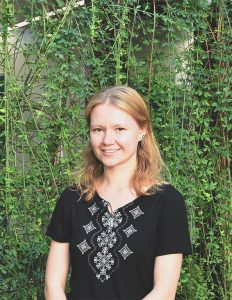We’ve proved it, biologists can also program
“Like punning, programming is a play on words.” Alan J. Perlis.
You don’t have to be a programmer to have programming skills. Writing code is an essential part of being a programmer (duh!), but is also a vital component of being a scientific developer, software developer or computer scientist. You can utilise computer programs to automate tedious and repetitive tasks, extract results from experimental data, apply models to solve your research questions or purely have fun with your own projects.
Today is Programmers’ Day (yay!🥳) and we want to recognise all those who submerge themselves in the deepest mysteries of code (especially their own) and aim to automate the future.
If you’re looking to start venturing into the programming world or embark on your next project, get some inspiration from some scientists who are helping out at our EMBL Events’ courses.

“What do I love about programming? It allows me to go from zero to one: gaining new biological insights from data.” Florian Huber (Postdoctoral Fellow, at the Typas Group in EMBL Heidelberg and the Beltrao Group at EMBL–EBI in Hinxton).

“Automated image analysis has always been an interesting and fun field of research, but thanks to the deep learning revolution and the wide availability of wonderful neural network libraries, we can now actually solve hard practical problems.” Ullrich Köthe (Group Leader in the Visual Learning Lab Heidelberg).

“Programming skills allow you to automate the routineparts of your job and focus more on the exciting ones. At some moment you just have so much data, that you would not want to process it manually. You would not wash your clothes by hand if you have a washing machine, would you? Then why analyzing your data manually, when you can have it done by a machine as well?” Valentyna Zinchenko (Predoctoral Fellow in the Kreshuk Group).

“Whenever I build something, be it a new machine learning model or my pet project, I always try to make it easy to understand and generic enough so that other people could use it in their work. I try to open source my projects whenever I can and contribute back to the community. There is nothing more rewarding than seeing your little piece of software used by others to find answers to their own research questions.” Adrian Wolny (Visiting Researcher at EMBL and PhD candidate at Heidelberg University).

“The relationship between computer science and modern biology is akin to that between mathematics and physics.” Pavel Baranov (Professor of Biomolecular Informatics, University College Cork, Ireland)
It’s no secret that managing biological data efficiently can be overwhelming and feel impossible. If you’re a biologist who’s interested in learning how to process, analyse, organise and interpret your almost innumerable data sets – preferably with the most suitable and state-of-the-art techniques and tools out there – EMBL Events has got you covered.
EMBL Course: Deep Learning for Image Analysis, Apply by 20 September 2019
EMBL Course: Exploratory Analysis of Biological Data: Data Carpentry, Apply by 5 November 2019
EMBL Course: Analysis and Integration of Transcriptome and Proteome Data, Apply by 10 November 2019
EMBL Course: Immune Profiling of Single Cells, Apply by 10 November 2019
EMBO Practical Course: Microbial Metagenomics: A 360º Approach, Apply by 27 January 2020
EMBO Practical Course: Measuring Translational Dynamics by Ribosome Profiling, Apply by 9 February 2020